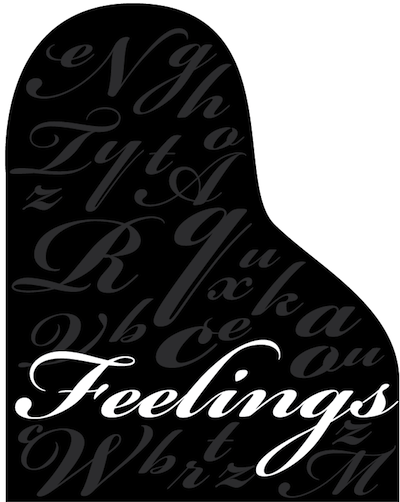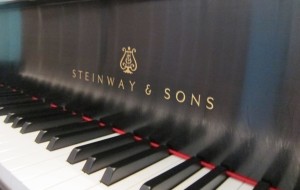Around a year ago, when I began studying the Nocturne in C-sharp Minor, I felt awed by how Chopin had packed in the notes a plaintive sadness. In contrast, in my childhood home, although Mom never articulated a rule on the matter, feelings were prohibited.
“I’m afraid to get on the bus,” I once told my mother when I was in junior high.
“No, you’re not,” Mom rejoined in this teasing, come-off-it tone. She reacted that way to most expressions of emotions. She must have sensed that otherwise, the fear I experienced around my alcoholic father and the resentment I felt towards her for not leaving Dad might whorl out of control.
Not long after I inaugurated work on the Nocturne, at my husband’s 25th college reunion in May, counselors whisked away my children for activities. I barely saw Cal and Mena except at night in the dorm room where our family was staying. Part of me felt guilty about indulging in alone time with David and our friends, while another part was preoccupied with cosmic questions, such as whether my bra strap showed underneath my red dress at the dinner dance.
I was thrilled when Cal, shy and sometimes slouchy in his posture, struck up a friendship with another 10-year-old named Clara, whose spunk matched her curly, orangish-red hair. When we returned home, he placed on his bookcase a framed photo of Clara and him, their faces beaming and heads leaning close.
A few months after David’s reunion, on a humid August afternoon, the rain came down in sheets. Inside the house of some local family friends, where we sprawled on two couches, the throw pillows felt damp. We talked about David’s college reunion. “We all had such an amazing time,” I said.
“I didn’t like the reunion at all.” Cal shook his head at me in a stubborn way. “I missed you.”
“Ca-al! Yes, you did,” I said in a jocular tone. My voice had the same erasing quality I had heard during my childhood from my mother.
Josie, our friends’ precocious nine-year old, shifted on the opposite couch. “If Cal says he didn’t have a good time, then maybe he didn’t.”
I felt embarrassed. Sometimes, as part of the tribe of Adult Children of Alcoholics, I felt so limited in my behavior.
Later, while I practiced the Chopin Nocturne, the melancholy notes swirling around me, I remembered how on the reunion’s Saturday night, after David and I had returned back to the dorm, the counselor had explained that Cal had insisted on sleeping in our room. I had found Cal on one of the spartan single beds, the overhead light glaring on his closed eyelids, a Harry Potter book splayed across his chest.
A few days later, I sat next to Cal on his bedroom floor while he put the finishing touches on a Lego airplane. “You must have been afraid going to sleep in that dorm room,” I said.
He nodded with vigor. “With all of those activities, I didn’t get to see you.”
He had enjoyed his friendship with Clara and also had longed for me, his mother. One experience did not cancel out the other.
There are so many brittle feelings in the Nocturne in C-sharp Minor that if you tried to pick up the notes with your hands, they would break apart. Returning to the piano and taking adult piano lessons has created for me a change of life. When I play classical piano music, hidden feelings inside bubble up and wash over me. Feeling is first: this I want to remember.





incredible
Glad you enjoyed the article!
I just love this particular nocturne, too. When i was learning it my teacher told me that I was so worried about hitting the right notes (not easy!) that I was ignoring the feelings. He had me memorize it and in so doing that was my way of learning and getting the notes. By memorizing and not looking at the score (and keeping eyes closed at times) and focusing on feelings, I could bring up that emotion evoked by the piece without inhibition. I try to memorize everything I play now. For me that does help with expression. Great article.
Janet, so glad that you liked the article and much appreciation for your insightful comment! I agree that memorizing the piece is a way to free up the pianist to go more deeply into the music and experience it’s feelings. Thank you for writing. Nancy